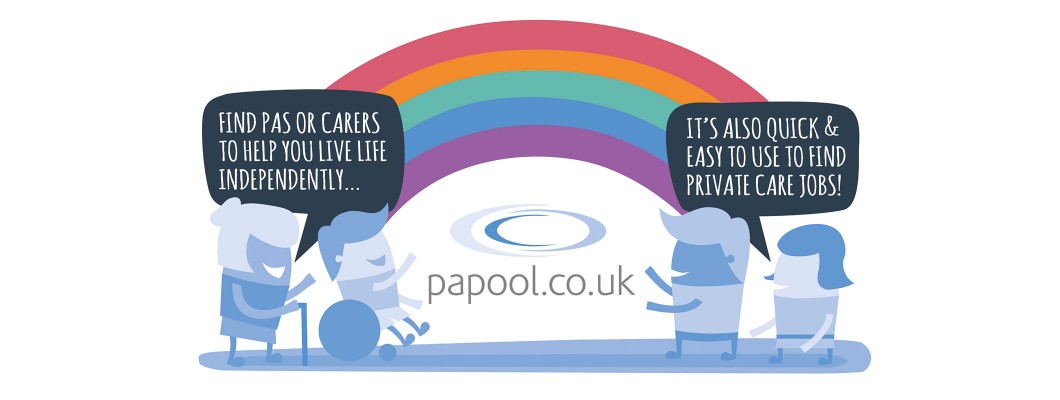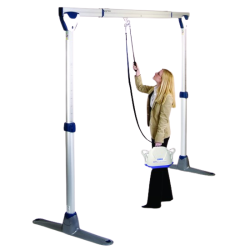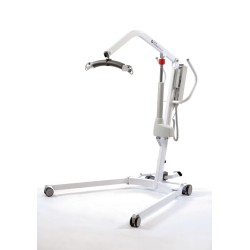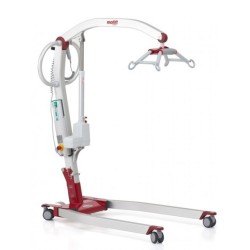
Looking to find a Personal Assistant for a disabled Person?, look no further...
www.papool.co.uk is a dedicated website for disabled or elderly people who need to recruit PAs/carers to help them live independently and PAs/carers who are looking for employment.
PA Pool founder Katy Etherington is a full-time wheelchair user who requires 24-hour assistance: “The problems I had recruiting the right PAs often prevented me from living my life on the most basic of levels, let alone allowing me to do the things I wanted to do. From the simple desire to make the process of recruitment easier and more effective for both myself and other people like me, the idea of PA Pool was born.”
PA Pool offers a UK-wide database of over 18,000 PAs and PA Users which can be browsed or searched using specific criteria. Members complete a profile about themselves detailing the support or job they're looking for, their needs or relevant experience. All the required information is instantly accessible, showing if a client or job is suitable without the need to waste time on unnecessary phone calls or e-mails. Initial contact is made securely through the website messaging. Whether the need is for emergency cover or a long-term position PA Pool makes the process quick, easy and focused.
Disability Rights UK Definition:
Being in Control: Getting Personal Assistants (PAs) Make a donation and support this factsheet Disability Rights UK Factsheet F2 Coronavirus information For guidance on the Coronavirus Job Retention Scheme for people receiving direct payments visit GOV.UK.
We have produced information on how Coronavirus is affecting our community. Read our information.
Your feedback wanted The Care Quality Commission (CQC) have recently launched their new ‘Tell Us About Your Care’ partnerships with a number of national charities, of which Disability Rights UK is one. This involves Disability Rights UK gathering feedback from disabled people about their experiences of using health and social care services. The CQC would welcome feedback on your experience of using any of the services they regulate. Please click here to do so.
Introduction With the introduction of the Care Act 2014 (that came into force in April 2015), there is a legal duty upon local authorities in England to provide or arrange services that promote independence for disabled people. Local authorities are now legally obliged to offer personal budget to anyone eligible for social care funding. You can request some or all of your personal budgets in the form of direct payments.
Using Direct payments to appoint a Personal Assistants Direct payments enable you to purchase services from care providers or employ your own support worker – known as a personal assistant (PA). You will then have more choice and control over how your support needs are met. Your support would be personalised to meet your requirements. However, taking on a PA turns you (as a direct payments holder) into an employer with all the legal, financial and practical issues that entails.
Direct payment is a cash payment that your local authority will arrange and make payments into a bank account opened by you, specifically to receive the personal budget. Most local high street banks will offer a basic current account for this purpose. The account should have no other funds credited unless it is agreed for example your own contributions or other public funding. The cash payments that the local authority credit to your bank account could be weekly, four weekly, monthly or otherwise. Make sure you know when the local authority credits the payments to you, so you can pay your staff appropriately.
Benefits for employing a personal assistant directly If you decide to employ your own support rather than having services directly commissioned by the council, then employing a personal assistant (PA) is the best option for you as it enables you to lead an independent life in your own home. It gives you a more flexible and tailor-made package of support as per your care and support needs.
You are in control as you directly instruct your own staff (PA’s) to carry out the tasks that you require assistance with. You have a say in choosing your PA who will offer you the help you need at home. It is very empowering for many disabled people, yet challenging. If you decide to employ a Personal Assistant you will need to ensure you follow employment legislation. Your Personal Assistant will have employment rights and you will have employment responsibilities.
It may be hassle free to use home care agencies however you won’t have the same control over who is meeting your care and support as you would if you were employing your own PA.
The list of duties your PA can assist you with It is important to be clear about the nature of the duties you want your PA to carry out in your domestic setting. Lack of clarity may lead to problems. Your PA can assist you with a wide range of tasks as per your assessed care and support needs stated in your Support Plan where you have already identified the areas and the list of tasks you need support with. Everyone’s needs are different so you should refer back to your support plan to determine the kind of assistance and the number of hours you will want your PA to do to meet your eligible needs. The PA may work for few hours or several hours each day (or night) as per your instructions.
Some of the tasks your PA can perform to assist you in maintaining your independence Personal care and hygiene, such as washing, dressing or using the toilet Accessing services in the community such as leisure and social activities Driving to help you get around Correspondence and paperwork Attending doctor and hospital appointment Domestic household tasks, meal preparation, laundry and cleaning Escorting you to meetings, community events, day trips and outings Help you with medication Assisting you to fulfil your parenting role Maintaining relations with family and friends Work, training and educational activities Mobility in your home and in the wider community Accessing necessary facilities and making use of public transport Shopping and ironing Supporting family carers when they need respite or break from their caring role Managing PA’s - Practical and admin things/employment paperwork Taking on the role of employer may be daunting at first as you may be uncertain of the legal obligations that entails. As you will be in charge of your staff (employees), you will be considered an Employer who must comply with the Employment law. You can receive support with this as well as with the payroll arrangements and employment paperwork. You will find impartial information in this factsheet and relevant links to useful websites. Under the Care Act, councils are obliged to provide advice and information to disabled people.
If you would like to search for something or somewhere specific, click on ‘edit search criteria’ to enter information about what you are looking for. You can search by your nearest town or city (‘Area’), your region, or by your post code. The list will then be filtered according to your criteria.
The NHS choice website contains a list of local support organizations at: www.nhs.uk/Service-Search/Support-for-independent-living/LocationSearch/386
Preparing a job description It is crucial to draw up a job description before you advertise for a PA. You need to think about what the job involves and what you expect from your employees. The job description will help you set out clearly the skills and qualities the applicant (PA) will need to have as well as the working pattern. Your direct payments advisor or broker can assist you in wording the job description and advertisement. Other local groups can support you as well such as Mencap or Age UK.
For additional information, please refer to the toolkit for employing personal assistants developed by Skills for Care. This toolkit helps individual employers employ their own personal assistants. This interactive version enables you to search and immediately access the information you are most interested in. It contains links to different sections within the toolkit and the useful templates. It also contains a sample of a contract of employment. There are also links to organisations you can access for more support and information. You can view the online interactive toolkit by visiting www.employingpersonalassistants.co.uk
Searching for a PA Decide the type of personal assistants you wish to take on and the nature of skills and personal qualities you are looking for. There are different ways you could use to find a PA.
Some councils allow you to advertise on their websites. It can be through word of mouth and personal recommendation. You can get someone you know who is eligible to work in the UK since you will need to register them with HMRC as employees, this is to prevent illegal working. For more information on the right to work in the UK and the documents you need to check for ID, visit the Home office website.
You can also advertise for PA in:
Local job centres (Job centre Plus) Local newspapers Local Disabled People’s Organizations (DPO) or User Led Organizations (ULO) or Personal Assistance Support Services other local support services who assist people in finding PA’s. Public places such as: local post office, shops, supermarkets or colleges of further education or places of worship Online for example: www.gov.uk/advertise-job or by logging onto these websites: www.papool.co.uk www.padatabase.org Or getting in touch with recruitment agencies who will charge you and you will pay the recruitment costs from your direct payments budget For security reasons, the advert should not include your own address but you need to briefly state the number of hours you expect the PA to offer on a weekly basis, hourly rate of pay, what the job involves, the kind of person you are looking for, any essential qualifications or references and DBS checks and how they should get in contact with you.
Paying your PA The rate of pay to your staff could vary according to age, and it varies from one county to another. It also depends on the amount of funding you receive from the local authority social services, as well as on the particular skills of the PA. By law, you cannot pay an employee below the national minimum wage. For more complex care needs, PA’s can get an hourly rate of around £12.
Factsheet F50 - how much do I pay my personal assistant? provides more information.
The national minimum wage usually changes in the month of October of every coming year. You can find more guidance on the National Minimum Wage at www.gov.uk/national-minimum-wage-rates
You should be able to pay your PA either by cheque or bank transfer. Local authorities don’t allow you to pay cash. You can pay your PA yourself or use a payroll provider or brokerage service.
You may be responsible for deducting tax and National Insurance from your PA’s wages. You will also be responsible for redundancy payments which should be incorporated in your care and support plan. Find out more about tax and National Insurance when employing staff in your home on the website of HM Revenue & Customs.
Calculating Holiday Entitlement Your PA has an entitlement to holiday pay that is based on the PA’s average pay. You need to ensure that your staff get their statutory holiday pay of a minimum 28 days (5.6 weeks, assuming a 5 day working week) paid annual leave a year which includes the eight bank and public holidays (pro rota). The employee is entitled to be paid for any leave s/he hasn’t taken if s/he stops working for you.
The holiday entitlement is capped at 28 days pro rota. In other words, if your PA works five days a week then s/he is entitled to 28 days paid annual leave which includes bank holidays. If however your PA works part time equated to two and a half days a week, then s/he is entitled to 14 days leave including bank holidays.
Depending on your PA’s working pattern, you may find it easier to calculate their holiday allowance in hours rather than days. For instance, if your PA works 15 hours a week, they are entitled to 84 hours per annum, i.e. 15 x 5.6 equal 84 hours in total including the bank holidays.
To be able to calculate the statutory holiday entitlement in days or hours, please visit the link www.gov.uk/calculate-your-holiday-entitlement
Rest breaks for your PA Your PA (whose age is above 18) must not be expected to work more than 48 hours a week unless they are considered living-in-carers or they have submitted their formal consent in writing. You will need to provide your PA the below:
At least 20 minutes break if the PA works for more than six consecutive hours. 1 day off out of every seven days (i.e. each week). 11 consecutive hours’ rest in any 24 hour period (also applicable to living-in-carers). There is a different rule for young people under 18.
Plan a back-up in emergency situations Use your contingency budget (agreed previously in your care and support plan) when an emergency arises. You are advised to make back-up plans to have alternative arrangements when your regular PA’s are off sick or on holiday in order to ensure continuity of care provision so that you don’t find yourself without care at any given moment when you need adequate support. You may wish to get in touch with a local agency in this situation.
Alternatively you could have another cover PA or a family member or a friend whom you have made arrangements with to be available when called in to assist you at short notice in these emergency circumstances.
Using a specialized payroll service When you take on staff as employees, you have to arrange for a PAYE (Pay as You Earn) scheme to be set up. Your accountant or payroll services could assist you in operating such scheme.
There are different options to have your payroll done. You could either manage your own payroll package at home or buy this service from your local payroll service or accountant or bookkeeper. Your local direct payments support service team could send you details of payroll services as well as insurance.
Alternatively, you can contact HM Revenue and Customs’ New Employer Helpline to arrange for a PAYE scheme to be set up. The New Employer Helpline supports those who wish to become employers and gives advice when taking on new employee. The Helpline also provides information on PAYE, Maternity and Paternity Pay, Statutory Sick Pay, Statutory Adoption Pay; Tel: 0300 200 3211
Payroll support services take on responsibility for making the calculations for paying wages, statutory payments, tax and national insurance, based on information provided by you. You could get the contact details of your local payroll services from your council or disabled people’s organization. ‘Enable Payroll’ also provides this kind of service for domestic employers.
www.enable-payroll.co.uk
Carrying out Disclosure and Barring Service (DBS) checks (previously known as CRB checks) on your employees If you wish to carry out (DBS) checks (or Protecting Vulnerable Groups PVG checks in Scotland) on your employees, your local council or voluntary organization or direct payments support services may assist in carrying out the check. This is to check for any listed previous convictions for a criminal offence. DBS checks are not mandatory if the person cared for (recipient of personal budget/direct payments) is over 16 years old. It is recommended to get a copy of DBS checks for any prospective worker before you let them into your home. You can read more on DBS checks on the gov.uk website for further information.
Providing a contract of employment for your PA You need to draw up a contract of employment for your PA. It is a written agreement between two parties (employer & employee) that is binding by law on both of them. It exists from the moment an employee agrees and signs the employer’s terms and conditions of employment. Hence, this contract comes into existence once an employee accepts to work for an employer in return for pay. Your local support service can assist you to draft one but they usually have sample contracts to give to service users.
The contract must stipulate the following:
the tasks the personal assistant should offer, the date when the employment began and duration of employment, place of work, working hours, rest breaks, pay rate, payment arrangements (times and means of payments) holiday entitlement and pay, retainer payments (for example when you are admitted to hospital or go on holiday for lengthy period – some disabled offer around 75% of the average salary) entitlement to sick leave, maternity/paternity leave and pay termination of employment, period of written notice, redundancy payments, pension schemes, disciplinary procedures Ensure that it is kept up-to-date and write down any changes that may take place in the long term.
You can find additional information on the link below:
www.gov.uk/business-support-helpline
Additionally, the Advisory, Conciliation and Arbitration Service (ACAS) have got expertise on employment matters. They have a helpline that deals with issues relating to employment. You can download some free information from their website:
www.acas.org.uk
See our Factsheet F63 - employment contracts for additional information
Taking out Insurance By law, you must purchase an insurance policy, i.e. Employer’s Liability Insurance and/or Public Liability Insurance. As a direct payments recipient taking on personal assistants, you must purchase an insurance to cover you against liability for an employee’s injury or against injuries caused by the PA while at work. The local authority must fund this as part of your personal budget/direct payments. Your local council or support service should signpost you to insurance providers who can offer cover for you.
You will need to renew your insurance every year. There are different cost rates for different types of insurance depending on whether it is a basic rate or premium rate as you may need to take out extra cover. Speak to your insurance provider or direct payments advocate/broker to find out the best option for you.
Various insurance companies sell different types of insurance to the PA’s employer. These could be employers’ liability insurance, public liability insurance, personal accident insurance or legal costs insurance that covers you if a dispute arises with your PA; you will need to get in touch with the below for advice:
Fish Insurance
www.fishinsurance.co.uk
Surewise
www.surewise.com/carers-insurance/
To determine the employment status of your PA There has been confusion over the employment status of Personal Assistants. Your PA is usually treated as an employee because in law there are certain conditions that must be met for someone to be viewed as self-employed. You cannot just choose a self-employed PA if you want to avoid your responsibilities as an Employer in paying tax and insurance or because the role of employer seems daunting. HM Revenue and Customs decide upon the status of employment/self-employment based on various factors.
The degree of control you have over how and when the work is done is a crucial factor in determining whether or not someone is self-employed. If your PA is self-employed, they can send someone else in their place if they cannot attend on a specific day.
If your personal assistant is an employee, you have more control as you decide the working hours, and you are responsible to give the PA pay slips, paid holiday, contract of employment, and sick pay. HM Revenue and Customs (HMRC) has detailed advice on employment status: www.hmrc.gov.uk
The ‘Employment Status Indicator’ (ESI) is an online tool on the HMRC website which assists employers to determine a worker’s employment status, it is available on: www.hmrc.gov.uk/calcs/esi.htm
The Low Income Tax Reform Group (LITRG) have produced nine factsheets that will help you understand the employment status of your PA, tax and national insurance responsibilities when you take on a personal assistant. LITRG have also produced an introductory guide "Taking on a personal assistant", which gives an overview of the things you need to think about if you are taking on a personal assistant.
You can download these at: http://disabilitytaxguide.org.uk/about/resources
Pension scheme and auto enrolment There is pension legislation that makes it mandatory upon employers of PA to automatically enrol certain staff (depending on age and earning) into a workplace pension scheme. You can get in touch with the Pension Regulator for advice on this.
See our Factsheet F61 - individual employers and workplace pension schemes for personal assistants
Health & Safety You, as the employer, are required to maintain your employees’ health and safety while at work. It is a legal responsibility to ensure that your PA is safe and healthy while on duty. You need to take practical steps to reduce risk to a minimum for example by carrying out a risk assessment or providing training for your PA (Skills for Care may provide funding for such training). You decide the safest way for your PA to do something while getting your needs met. It is essential that you take out an insurance as previously outlined. You could get in touch with the Health and Safety Executive for further information on: 0854 345 0055
http://www.hse.gov.uk/
Other sources of information View the online interactive toolkit on employing personal assistants developed by Skills for Care by visiting: http://www.employingpersonalassistants.co.uk See the factsheets produced by LITRG that provides resources and information for anyone employing a PA ranging from tax status, employment law, insurance to paying wages: www.disabilitytaxguide.org.uk The new social care web tool, designed to help people find details of the social care support available to them locally. It is a national information about their rights and entitlements as well as providing details of local independent advice organisations. It has been developed with funding from the Law Society Charity and the Access to Justice Foundation and with support from MySociety. http://socialcareinfo.net/ Peer support is available to disabled people who are personal assistants employers. Peer support could be one-to-one or in-groups. The below website shares information based on the experiences of disabled people who employ PA’s and provides a safe forum to discuss thoughts. Click on www.beingtheboss.co.uk A browsable database of PA’s and PA users is available on PA Pool. It gives information on each person and what they are looking for. So you can register and search the database whether you are looking for PA or you are looking for jobs as a PA: www.papool.co.uk A way of getting support and advice from other PA users is via ‘peer support’. There is peer to peer support in Hull City where direct payments users ‘pool’ together their funding resources to make it more affordable and flexible for them to collectively employ personal assistants. www.choicesandrights.org.uk You can find useful information when employing PA if you click on this link: www.gov.uk/employing-staff Where can I get more help or information? This factsheet is a basic overview. We have other publications concerned with independent living in our shop at https://www.disabilityrightsuk.org/shop



